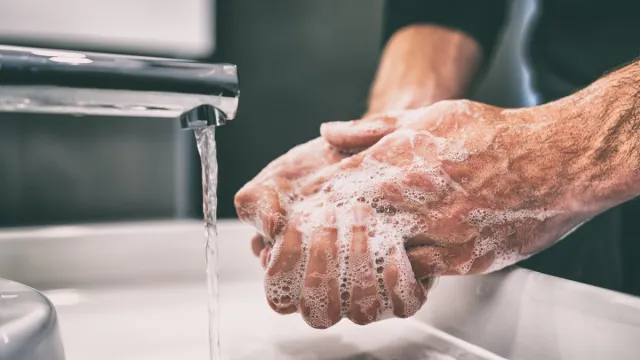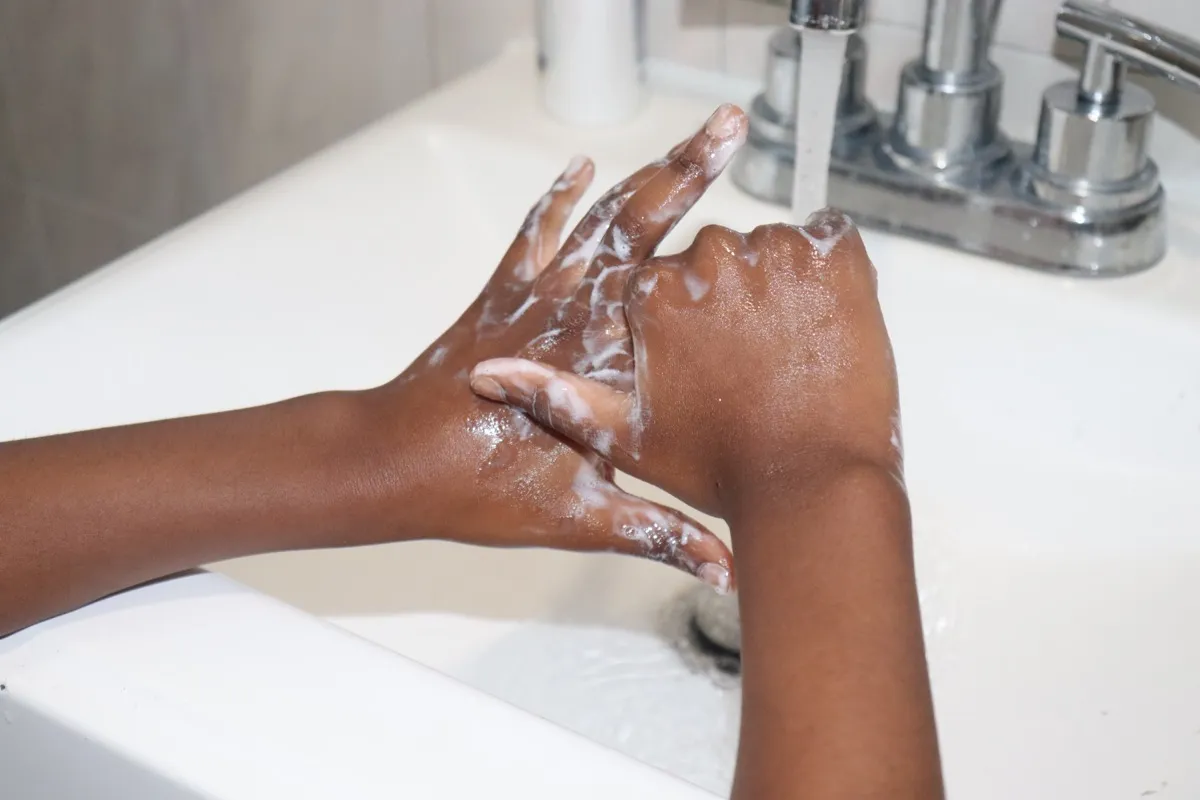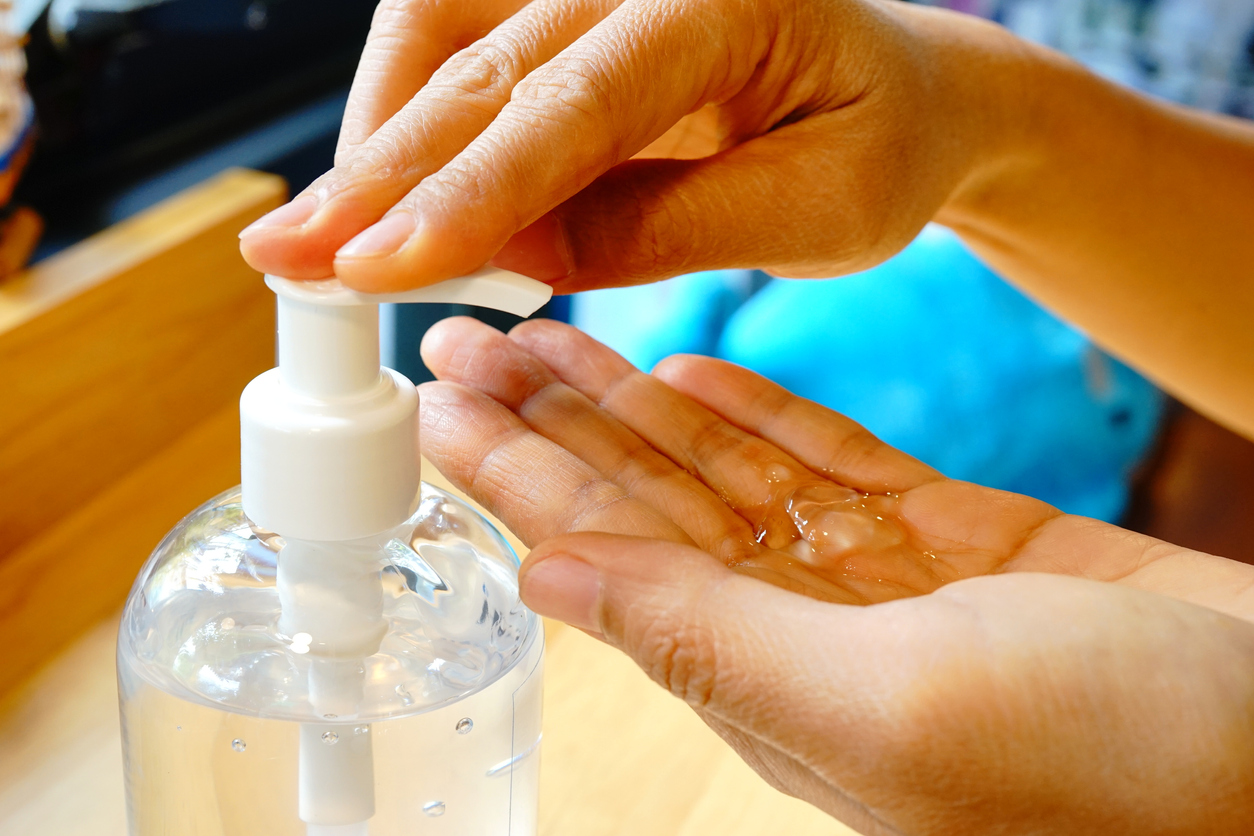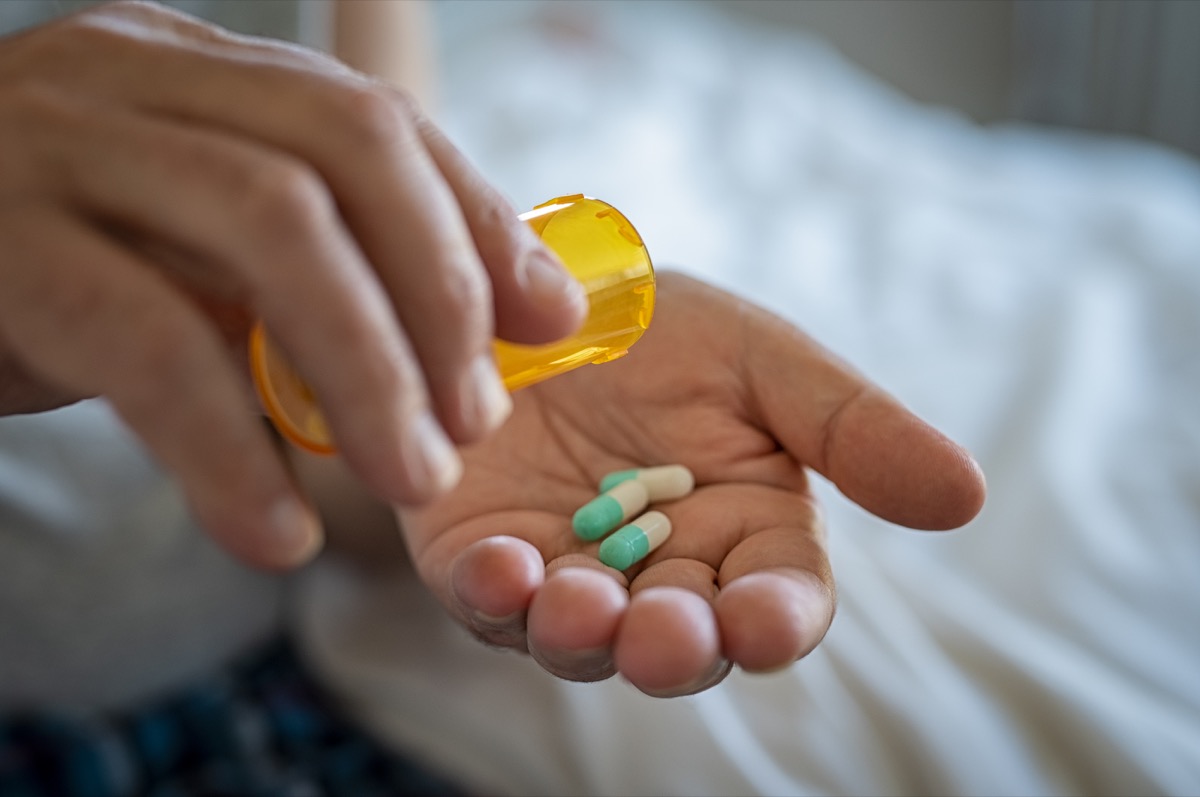What Happens If You Don’t Wash Your Hands After Blowing Your Nose, According to Doctors

Mucus may be gross, but it serves an important purpose: It helps stop viruses, bacteria, and irritants from entering the lungs through your nose. Yet precisely because mucus is so effective in trapping germs, it’s also effective in spreading them any time you blow your nose, cough, or sneeze. That’s why it’s so crucial to wash your hands every time you reach for a tissue—and why it’s so troubling that 25 percent of people admit to not doing so, according to a 2020 CDC report. Read on to learn which illnesses are most likely to spread if you don’t wash your hands, and why you could be putting yourself or others in danger by doing a less-than-thorough job.
READ THIS NEXT: What Happens If You Don’t Shower for a Month, According to Doctors.
Not washing your hands after blowing your nose can spread a range of illnesses.

Tissues can help protect you from germs, but it’s still important to wash your hands thoroughly after blowing your nose, experts say. “The act of not washing your hands after blowing your nose can potentially spread various respiratory illnesses caused by bacteria and viruses, such as rhinoviruses, influenza, chickenpox, meningitis, and Group A and B streptococcal infections,” explains Cameron Rokhsar, MD, FAAD, FAACS, a board-certified dermatologist and Associate Clinical Professor of Dermatology at Mount Sinai Hospital in New York. “These illnesses can cause symptoms ranging from mild to severe, including fever, chills, stomach cramps, nausea, vomiting, and diarrhea,” he tells Best Life.
Rokhsar says that when you blow your nose, you expel secretions that contain bacteria and viruses that can easily transfer to your hands. “Touching surfaces or objects that have been contaminated by these secretions can lead to the spread of these harmful pathogens. When you touch your eyes, nose, or mouth with contaminated hands, you can introduce these pathogens into your body and become infected,” he warns.
READ THIS NEXT: Never Leave the Bathroom Stall Before Doing This, Doctors Warn.
Here’s how to wash your hands properly.

According to Rokhsar, some of the respiratory illnesses you can spread after blowing your nose are potentially life-threatening—especially in the age of COVID. This presents a serious problem, since a 2018 study by the U.S. Department of Agriculture (USDA) found that people fail to adequately wash their hands 97 percent of the time.
“To prevent the spread of these illnesses, it is important to wash your hands frequently with soap and water, especially after blowing your nose, coughing, or sneezing,” says Rokhsar. “Washing your hands with soap and water for at least 20 seconds can help eliminate harmful bacteria and viruses from your hands.” He notes that you should be sure to lather both the fronts and backs of your hands, under your fingernails, and between your fingers before rinsing with water and drying your hands with a clean towel or air dryer.
Sanitizer can help—but isn’t a substitute.

Rokhsar says that if soap and water are not readily available after blowing your nose, you can use an alcohol-based hand sanitizer with at least 60 percent alcohol to help reduce the spread of germs.
However, he cautions that a thorough wash with soap and water is preferable, when possible. “While hand sanitizers and sanitizing wipes can be effective in reducing the number of germs on your hands, they are not a substitute for washing your hands with soap and water,” he tells Best Life. “They may not be as effective at removing dirt, oil, or harmful chemicals that can be present on your hands. Furthermore, the alcohol in sanitizers and wipes can be drying to the skin and may cause irritation or allergic reactions in some individuals.”
For more health news sent directly to your inbox, sign up for our daily newsletter.
Good hand hygiene can help fight antibiotic resistance.

Besides the immediate benefits of practicing good hand hygiene, there’s also a big-picture benefit to regularly washing your hands. By not spreading sickness in the first place, you reduce the overall incidence of antibiotic prescription. This helps to fight antibiotic resistance, which makes infections more difficult to treat.
“In addition to hand hygiene, reducing the use of antibiotics is also crucial in preventing antibiotic resistance,” says Rokhsar, adding that antibiotics should only be prescribed when they are necessary and appropriate. “Using antibiotics unnecessarily, or not completing the full course of treatment, can contribute to the development of antibiotic-resistant bacteria. Good hand hygiene and responsible antibiotic use go hand-in-hand in the fight against antibiotic resistance,” he says.
The next time you blow your nose, do your part to curb the spread of sickness. Wash your hands thoroughly with warm, soapy water for at least 20 seconds before touching anything else.